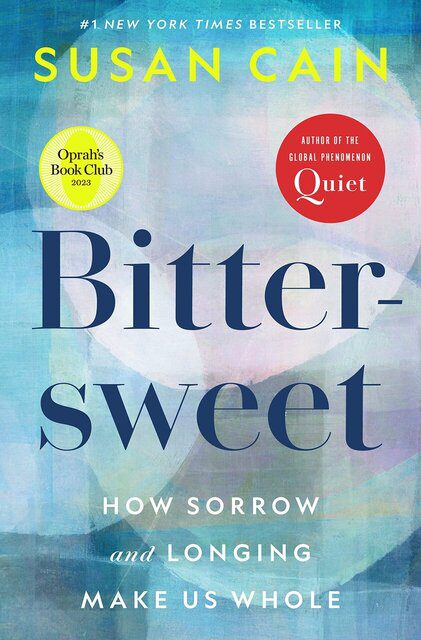New York Times bestseller and author of one of my favourite books, Quiet: The Power of Introverts in a World That Can’t Stop Talking, Susan Cain, writes about bittersweetness in her book Bittersweet (Oprah’s Book Club): How Sorrow and Longing Make Us, The book’s central theme is that there is no happiness in life without sadness, no one lives a sorrow free life, it is not a matter of whether that the tough times would come around; it is more about how we handle it. We all have a choice to either get better or get bitter, learn the lessons or let it lessen us, get the message or stay stuck with the mess.
Book’s Theme
The book is about the melancholic direction which Cain calls the “Bittersweet”: a tendency to states of longing, poignancy, and sorrow; an acute awareness of passing time; and a curiously piercing joy at the beauty of the world. The bittersweet is also about the recognition that light and dark, birth and death—bitter and sweet—are forever paired. “Days of honey, days of onion,” as an Arabic proverb puts it. The tragedy of life is linked inescapably with its splendor; you could tear civilization down and rebuild it from scratch, and the same dualities would rise again. Yet to fully inhabit these dualities—the dark as well as the light—is, paradoxically, the only way to transcend them. And transcending them is the ultimate point. The bittersweet is about the desire for communion, the wish to go home.
The idea of transforming pain into creativity, transcendence, and love—is the heart of the book.
The Pursuit of Happiness
Americans prioritize happiness so much that we wrote the pursuit of it into our founding documents, then proceeded to write over thirty thousand books on the subject, as per a recent Amazon search. We’re taught from a very young age to scorn our own tears (“Crybaby!”), then to censure our sorrow for the rest of our lives.
Longing
Longing is momentum in disguise: It’s active, not passive; touched with the creative, the tender, and the divine. We long for something, or someone. We reach for it, move toward it. The word longing derives from the Old English langian, meaning “to grow long,” and the German langen—to reach, to extend. The word yearning is linguistically associated with hunger and thirst, but also desire. In Hebrew, it comes from the same root as the word for passion.
Our Longing is the gateway to belonging.
The place you suffer, in other words, is the same place you care profoundly—care enough to act. This is why, in Homer’s Odyssey, it was homesickness that drove Odysseus to take his epic journey, which starts with him weeping on a beach for his native Ithaca. This is why, in most every children’s story you’ve ever loved, from Harry Potter to Pippi Longstocking, the protagonist is an orphan. Only once the parents die, transforming into objects of yearning, do the children have their adventures and claim their hidden birthrights. These tales resonate because we’re all subject to illness and aging, breakups and bereavement, plagues and wars. And the message of all these stories, the secret that our poets and philosophers have been trying to tell us for centuries, is that our longing is the great gateway to belonging.
Bittersweetness
At their worst, bittersweet types despair that the perfect and beautiful world is forever out of reach. But at their best, they try to summon it into being. Bittersweetness is the hidden source of our moon shots, masterpieces, and love stories. It’s because of longing that we play moonlight sonatas and build rockets to Mars. It’s because of longing that Romeo loved Juliet, that Shakespeare wrote their story, that we still perform it centuries later.
All the best in your quest to get better. Don’t Settle: Live with Passion.



Comments are closed.